
Oscars Countdown: What to Read (and Watch) After Women Talking
Lit Hub’s Literary Countdown to the 95th Academy Awards
Sure, we’re a website about books, but that doesn’t mean we can’t get in on the Oscars fun, too. (Exhibit A: If they gave Oscars to books, our 2022 nominees.) And while there are few adaptations in this year’s lineup, we’ll still be tuning in on Sunday to celebrate storytelling, judge the Academy’s taste, and perhaps witness some live drama. In the meantime, we’re recommending the books and films you and should read and watch next for each Best Picture contender. And the nominee is: Women Talking.
*
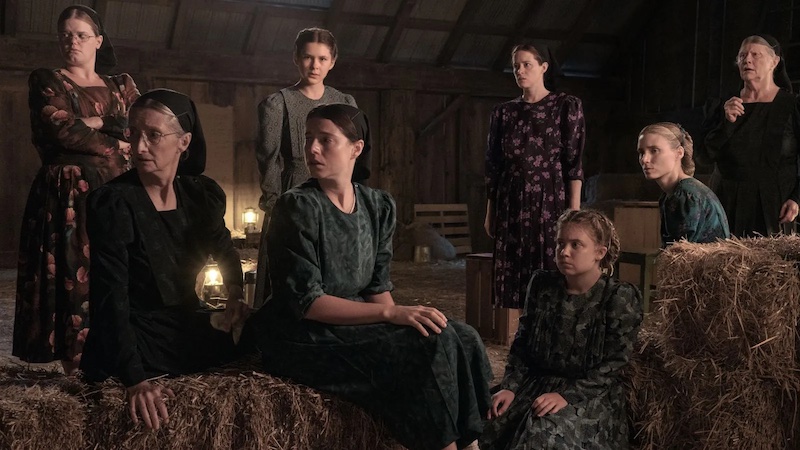
In Women Talking, Acts of Imagination Are Acts of Resistance
Before the movie, before the novel, there was the horrific reality: in the early 2000s, in an isolated Mennonite community in the Bolivian lowlands, women began to awaken naked, disoriented, and in pain, sometimes covered with cuts and bruises. Community leaders dismissed the mysterious attacks for years, insisting that they were the work of the devil or that the women were simply lying or imagining things. Eventually, nine men were convicted of the assault and rape of 151 women and girls. The men, all members of the community, had used livestock anesthetic to immobilize their victims, who ranged in age from 65 to just five years old.
In 2018, Canadian author Miriam Toews, who was raised in a small Mennonite town in Manitoba, published her novel Women Talking, in which eight women from a fictional Mennonite community meet in a hayloft to debate their response to a similar series of crimes. Should they do nothing, stay and fight, or leave the only home they know? On their way to a decision, the women argue about the nature of evil, the limits of forgiveness, and the meaning of faith, interspersing their intellectual debate with rage, panic, cruelty, and even laughter. In response to the gaslighting of the real-life victims, Toews calls her book “an act of female imagination,” and it is a powerful one—compact, intricate, and unsparing. (Keep reading)
*
READ THIS, WATCH THAT:
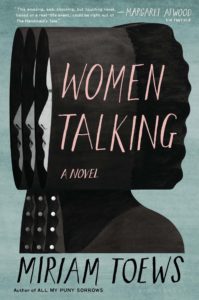
Miriam Toews, Women Talking
Okay, sure, an easy rec, but if you haven’t read Women Talking yet, you absolutely should. I don’t think I’ve ever seen a film adaptation that lifts so many lines directly from its source material—which is another way of saying that Miriam Toews is an absolute master of dialogue. Like the film, the book is propulsive, thought-provoking, deeply moving, and also surprisingly humorous. Trademark Toews. –Eliza Smith, special projects editor
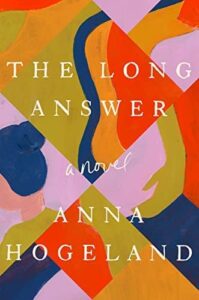
Anna Hogeland, The Long Answer
Another engrossing book of conversations between women, Anna Hogeland’s The Long Answer feels like eavesdropping on phone calls and late-night talks I’ve had with my own friends. The stories here circle around pregnancy, abortion, miscarriage, and infertility—but of course it’s not only about those things (it never is). As Brenda Shaughnessy writes for The New York Time Book Review, “All the narratives in the novel make clear that the only thing that makes any of it bearable is the agency each woman can claim.” –ES
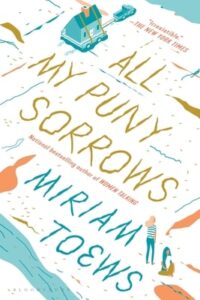
Miriam Toews, All My Puny Sorrows
Before Women Talking, there was All My Puny Sorrows. (Actually, I dare say it’s the best book Miriam Toews has written; fight me!) It focuses on two sisters, Elf and Yoli. Elf is a celebrated pianist, very rich, and very much in love. Yoli, on the other hand, is a little more lost in life. But no matter; they’ve always had each other. Until Elf decides she wants to end her life. All My Puny Sorrows unfolds in the time after Elf’s latest suicide attempt. But don’t go thinking it’s entirely gloomy. In parts, the book is actually quite funny! Miriam Toews has perfectly depicted the nuances of sisterhood—its intimacies and understanding. The dialogue leaps off the page. Yes, she knows the magic of two women sitting in a room, talking. –Katie Yee, associate editor
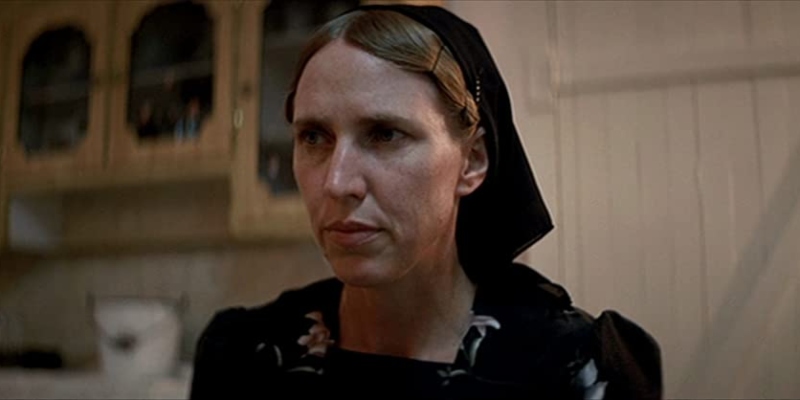
Silent Light (2007)
Miriam Toews acts in Carlos Reygadas’s beautiful film, which won the Cannes jury prize in 2007. The film takes place in a Mennonite community in Mexico, where a respected, married man named Johan has an extramarital affair which tests his faith and his guilt, and challenges the fabric of the community. Toews plays Johan’s wife, and her experience working on the film inspired her 2011 novel Irma Voth, which is about a young girl living in a Mennonite community that is visited by a film crew. –Olivia Rutigliano, CrimeReads associate editor
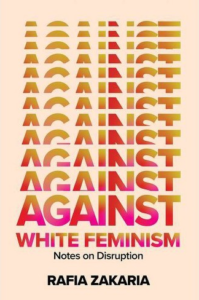
Rafia Zakaria, Against White Feminism
Miriam Toews was raised Mennonite in Manitoba, but as Women Talking is set in a colony in Bolivia, the patriarchal horrors risk seemingly like a problem for “over there,” Rafia Zakaria might have argued, had her book Against White Feminism come out later. Born in Pakistan, Zakaria came to the US for an arranged marriage that turned abusive; she left her husband and has written extensively since about the privilege that whiteness affords women, and the blindspots it brings, along with the question of how to address male violence. In Against White Feminism, Zakaria digs into “the division between the women who write and speak feminism and the women who live it, the women who have voice versus the women who have experience,” making this an ideal companion if you found the film ignited something. –Janet Manley, staff writer



















